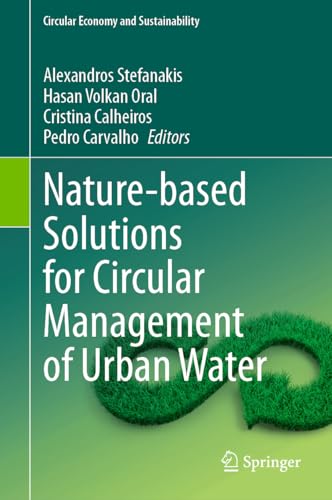
Free Download Nature-based Solutions for Circular Management of Urban Water by Alexandros Stefanakis, Hasan Volkan Oral, Cristina Calheiros, Pedro Carvalho
English | PDF EPUB (True) | 2024 | 438 Pages | ISBN : 303150724X | 92.1 MB
Despite the strong economic growth of the last decades, our modern global society is facing the existential threat of climate change. It is now realized that the linear economic model is not sustainable in the long run and cannot sustain the life standards. The new circular economy approach that is already under discussion suggests the adjustment of our priorities and the re-orientation of the future infrastructure investments. In this context, we are looking for new, innovative and sustainable solutions to increase the resiliency of our societies, to protect and restore the ecosystems, and to maintain the necessary economic growth without further undermining the planet's boundaries. The well-being of coming generations will depend on our ability to adapt our economies to this challenge. In particular, transforming today's cities into sustainable cities is one of the main adaptations that will be necessary. A holistic approach looking at cities from a system's perspective is neededto achieve this goal.
Nature-based solutions (NbS) serve exactly this ambitious and multi-factorial purpose due to their inherent ability not only to tackle climate change but also to provide a series of ecosystem services and social benefits. In the urban context, NbS can deal with main challenges such as urban heat islands, flooding, treatment of wastewater and runoff and food provision. At the same time, NbS can provide a series of ecosystem services beneficial for the environment and the society including clean water production, nutrient recovery, heavy metals retention and a broad range of plant-based materials. In the new circular economy paradigm, NbS can contribute to strategies for climate change adaptation and create a holistic resource management system for the urban biosphere.
Thus, this book aims at providing a single reference that discusses the role and effectiveness of NbS in the urban environment and how these systems can contribute to the circular management of water, nutrients and resources towards resilient, sustainable and healthy cities. The scope of the book extends to various fields and disciplines such as the built environment, urban water and wastewater, resource recovery, urban farming, smart sensing, research and development, technology and innovation, society and governance. Research studies, pilot projects, and case studies are part of the book.
Nature–based Solutions for Circular Management of Urban Water Torrent Download , Nature–based Solutions for Circular Management of Urban Water Watch Free Link , Nature–based Solutions for Circular Management of Urban Water Read Free Online , Nature–based Solutions for Circular Management of Urban Water Download Online
